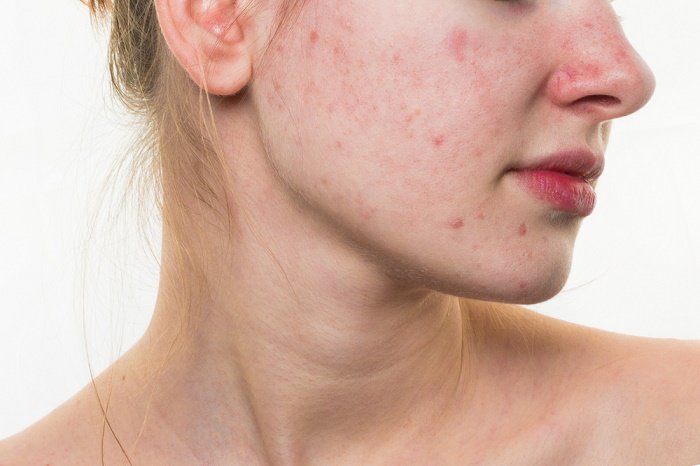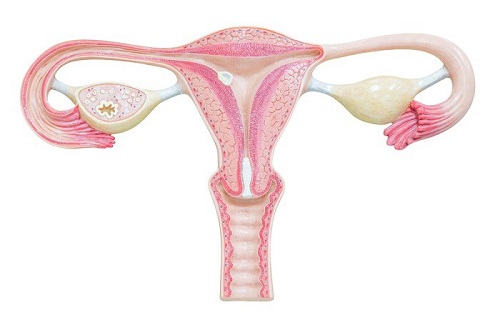All women have had moments when we’ve felt angry, frustrated and emotional, and sometimes for no apparent reason. Although it’s not an excuse, we often blame this on our hormones. It’s true, hormonal imbalance does play an important role in this and in many other things that you might not realize.

What causes hormonal imbalance?
Hormones, of course, play a very important role in women’s health and well-being. When hormone levels fluctuate, this can have an impact on your mood, sexual desire, fertility and ovulation. Hormonal problems are common, so if you feel like you are experiencing a hormonal imbalance, you’re not alone.
13 signs of hormonal imbalance and what to do about it
There are certain factors that can throw off the natural chemistry of your body. Common culprits are menopause, pregnancy, your menstrual cycle, birth control, and lifestyle factors such as inconsistent sleep patterns, stress, poor diet and lack of exercise. Other causes could be thyroid problems or diabetes.
1. Trouble sleeping
Many women have difficulty falling asleep especially right before their period. This can be due to the dramatic dip in the hormone progesterone just before menstruation. Progesterone levels also decrease after giving birth, but then you can point to your new chapter as a mom. Progesterone has relaxing properties, so when your levels drop, it can make you feel restless. If you want to choose a natural way to fall asleep, you can read our articles: How to treat insomnia naturally, Foods that can help you sleep, or Sugar and salt for insomnia?
2. Persistent acne
Many women begin to break out before their period due to hormonal changes. However, if you suffer from chronic cystic acne all the time, androgens (masculine hormones) could be to blame. Testosterone stimulates excess sebum (oil) production, which gets trapped under the skin and mixes with the bacteria that cause acne and dead skin cells. This leads to blackheads and pimples, and thus acne marks. The higher a woman’s testosterone, the worse the acne. Nevertheless, you should know that hormones are not always the cause, it could be a poor diet, for this we recommend that you read our article: The cause of acne that doctors never told you
3. Mental fog
Are you constantly forgetting things? Like where you put your purse, keys, or your appointment for the next day? If so, it could be a hormonal problem. If you have been experiencing a lot of stress lately, your body produces high levels of cortisol which is the stress hormone. Studies suggest that consistently high levels of cortisol can block your ability to learn and your memory. You can read our article: 10 signs that you have high levels of cortisol and how to lower it.
4. Constant appetite
Can’t keep your hand out of the cookie jar? If so, you should stop calling yourself a pig. Yes, it’s important to eat healthily and exercise, but your uncontrollable appetite and cravings could be the result of a hormonal imbalance. Are you sleeping well? In one study, volunteers who were sleep deprived had their levels of the hormone ghrelin shoot up – making them extremely hungry – while their levels of the hormone leptin, the satiety hormone, dropped.
The hormone ghrelin stimulates appetite, and leptin and oxyntomodulina suppress it. This explains why people who are chronically sleep deprived (who get less than seven hours per night) tend to be more overweight than those who sleep more. You can read out article: Leptin, how to control the hunger hormone to lose weight.
5. Digestive problems

Stress hormones affect us in different ways. Some people carry their stress in their heads, and have tension headaches, some may simply have a bad mood and want to curl up on the couch with a box of chocolates. Some people carry their stress in their stomach. The production of cortisol is naturally high in the morning to help you wake up. However, people with chronically overactive adrenal glands and an overproduction of cortisol, have altered concentrations of cortisol which causes low levels of cortisol in the morning when it’s time to wake up, instead of high.
Additionally, if you suffer from irritable bowel syndrome (IBS), it could be due to abnormal levels of serotonin. 90% of those affected are women, some of which find their IBS symptoms flare up around their periods. The flow of estrogen and progesterone can also play a role.
6. Constant fatigue
We all have days when we’re so tired that we’re desperate for a nap. We suffer from chronic fatigue. However, if you feel exhausted every day, you could be suffering from a thyroid hormone deficiency, a condition called hypothyroidism. It’s more likely that you have this condition if you have gained 10 to 20 lbs. that you can’t lose, even with diet and exercise.
Thyroid hormones control the body’s metabolism, and when those hormone levels are low, all the body’s systems slow down, including heart rate, mental functioning, and digestion. This is why hypothyroidism can make a person feel exhausted, with a foggy mind, and even constipated. If you are suffering from hypothyroidism, you are not alone, as it is believed to affect at least 15 million adults just in the US. Read our article: 10 signs that you have a thyroid problem.
7. Mood changes and depression
The majority of middle aged women experience mood changes and feelings of anxiety in situations that they used to be able to deal with calmly. This is probably due to a hormonal imbalance, which could be related to menopause. Read our article: Natural, non-toxic solutions for menopause, or if you suffer from mild to moderate depression, we invite you to read our article: 10 tips to fight depression naturally after consulting your doctor.
8. Weight gain
As women age, they tend to believe that weight gain is inevitable. But there could be an underlying problem causing that weight gain. The problem could be your worn out adrenal system which is sending signals to your thyroid that there is a problem. The thyroid then responds by decreasing your metabolism.
Then, the pancreas also responds to the signal, thinking it needs to conserve fat, and it accumulates as fat storage in your midsection, back and other areas that aren’t right for your specific body type. You can read our article: How to stabilize your hormones and burn body fat.
9. Headaches and migraines
When women enter middle age, the often suffer frequent headaches and even migraines. This could be due to hormonal imbalances around certain parts of their menstrual cycle. If you are suffering from headaches and migraines, it might be useful to keep a diary of when they occur. In this way you can determine if they happen randomly or if they appear to follow certain triggers. To get more information, consult our article: Natural remedies for headaches.
10. Hot flashes and night swears
If you have hot flashes often, this could be due to an imbalance in hormone levels. It was once thought to be due to low estrogen, but now we know that the cause can also be a dominance of estrogen and very little progesterone, or other hormonal imbalances in your body that come from the adrenal glands, ovaries, thyroid, pancreas or gastrointestinal tract. These systems aren’t always balanced, and women are more prone to hormonal imbalances as they go through the changes that come with middle age. You can see our article: How to reduce hot flashes caused by menopause.
11. Vaginal dryness

As you get closer to menopause, decreasing levels of estrogen causes changes in the vaginal wall. This can cause vaginal dryness, which can make sex uncomfortable. There are lubricants available that can relieve the discomfort – talk with your doctor about your options.
12. Changes in your breasts
As women age, high levels of estrogen can make their breasts feel tender or painful, which can give rise to tumors, fibromas and cysts. That’s why it’s important to do annual breast self-exams. Get to know your breasts, get into the habit of checking them yourself, looking for bumps or anything unusual. You can also get more information in our article: 5 weird signs of breast cancer. While not every bump or change in your breast means cancer, it is still the best way to be on the safe side and talk with your doctor if you find anything suspicious.
13. Loss of libido
Hormonal imbalances can cause women to experience low sexual desire. This can be due to low levels of estrogen. You can read our article: Foods that contain natural estrogens.
Advice:
If you suspect that you are suffering from conditions related to hormonal imbalance, it’s a good idea to visit your doctor to resolve your doubts. We also recommend not to eat processed foods, especially dairy and meat from factory farms where animals, such as chickens and cows, are injected with hormones. If you must eat them, make sure they are organic dairy and meat, from free-range animals that have not been given hormones.
Hormonal imbalances are recognized in this day and age, and there are qualified specialists such as obstetricians, gynecologists and reproductive endocrinologists who specialize in diagnosis and treatment of hormonal imbalances and anomalies.
Imágenes: Shutterstock
